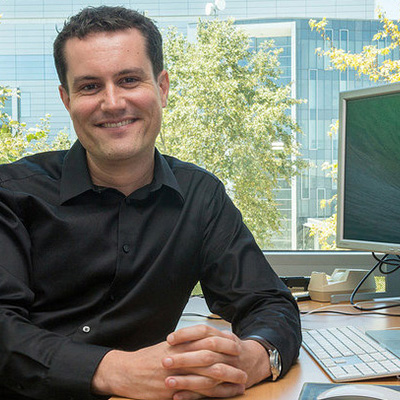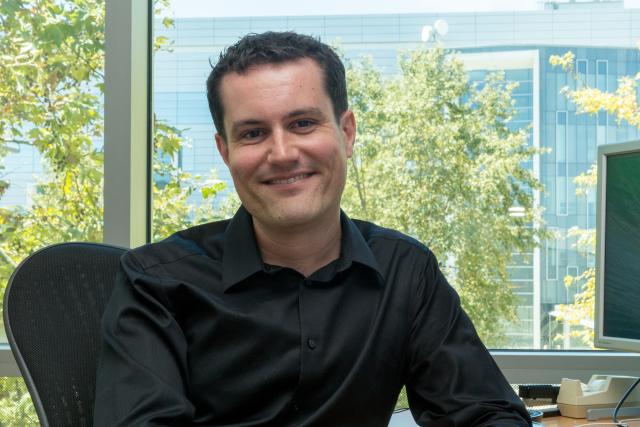
With a major new project approved but put on hold in light of the Trump Administration's plan to cut back research spending, CSE professor George Porter has taken it upon himself to lobby San Diego representatives on Capitol Hill to limit the damage.
As reported in The Triton, an independent, student-run news source at UC San Diego, Porter is worried that if the Administration has its way, a major new project funded by the Department of Energy could get canceled -- even though in March Porter and six other UC San Diego researchers awarded $3.8 million under the program in March.

The program in question is Energy Efficient Lightwave Integrated Technology Enabling Networks that Enhance Datacenters (ENLITENED), funded by DoE's Advanced Research Projects Agency-Energy (ARPA-E). The new program is in danger because the current proposed budget is slated to cut 100 percent of ARPA-E funding, which would kill the ENLITENED project.
Following the agreement to temporarily extend the previous budget rather than risk a government shutdown, the program is on hold. As a result, Porter took it upon himself to begin lobbying the office of Republican congressman Darrell Issa who repesents California's 49th district, which includes the UC San Diego campus.
"I think it's incumbent on all scientists to be keeping our representatives apprised to the work that we do," Porter told The Triton. "It's funded by the federal government, and I think it's important that we connect that loop... so that they understand where that money is going."
Specifically, Porter attempted to convey to Issa's aides that in large part, the planned funding would go to support graduate student researchers who depend on such grants. "Who's really hurt by these cuts," he noted, is "the next generation of scientists in a critical phase of their career."
Porter says he also wanted to see "if there was anything this congressman could do to support UCSD and support that research." He confirmed that Issa's aides have been accesssible and "took a legitimate interest in securing funding for the project."
Porter also contacted San Diego's Democratic congressional delegation, including Susan Davis and Scott Peters, but Issa was the primary target as someone who could influence the majority that the Republicans hold in the House of Representatives and the U.S. Senate.
Read the full article in The Triton.

